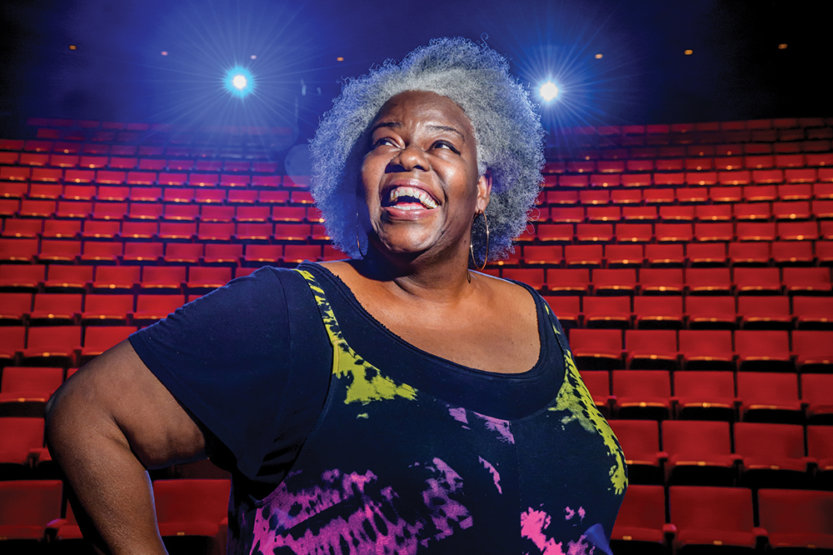In Class: Royal Thespian
 “When students graduate, I tell them, ‘Lovely! Wonderful! Now go out and take over the world,’” says theatre professor Lisa Dixon.
(Image by Fred Zwicky)
“When students graduate, I tell them, ‘Lovely! Wonderful! Now go out and take over the world,’” says theatre professor Lisa Dixon.
(Image by Fred Zwicky) I teach acting. Beginning acting, contemporary scene work, classical plays. I regard teaching as my life’s calling—helping my students to find their own voice. Because getting a degree in theatre is about learning how to be more completely yourself.
Our graduates appear on television shows, and are in films, theatre and teaching. They are winning regional and national awards. When students graduate, I tell them, “Lovely! Wonderful! Now go out and take over the world.” And they’re doing it, which makes me very proud and very happy.
After I got my undergrad degree from Illinois in anthropology, I went to graduate school in theatre and got a couple of acting gigs at Steppenwolf Theatre in Chicago. A year-and-a-half after I was out of graduate school, I joined the Royal Shakespeare Company in London. I also got to work at the Globe Theatre. It was a fairytale dream come true. I fell in love with London and Ireland. I thought, “I’m going to spend the rest of my life here.”
But life intervenes. I ended up coming back to Champaign to take care of my mum after she got ill. I was working as a secretary in the Dept. of Biochemistry when I went to Krannert [Center for the Performing Arts] one day to have lunch, and I saw a job posting for a visiting professor of theatre. I applied and got the job. I started teaching in the fall of ’98.
One of my favorite classes is Shakespeare. So many students begin the class with this idea of “what does an old dead white guy from Europe have to say to me?” But once they unlock the language, they realize that the people in Shakespeare’s plays have the same kinds of problems, issues, doubts and desires that we have today, and that Shakespeare tells us about these things in a beautiful language that can’t be topped. That opens a window on the universality of theatre and helps the students become more empathetic. Because to be a good actor, you have to be a good citizen of the world.
Somewhere along the line, I realized, “Oh my God. Not only am I really good at this, but I think I am making a difference in the lives of students—not just as actors but as human beings.”
I am directing Much Ado About Nothing for the Illinois Shakespeare Festival this summer. The festival [at Illinois State University] is in its 42nd year, but this is the first time that an African American has ever directed for them. So—no pressure on me!
Edited and condensed from an interview on June 15, 2022.

